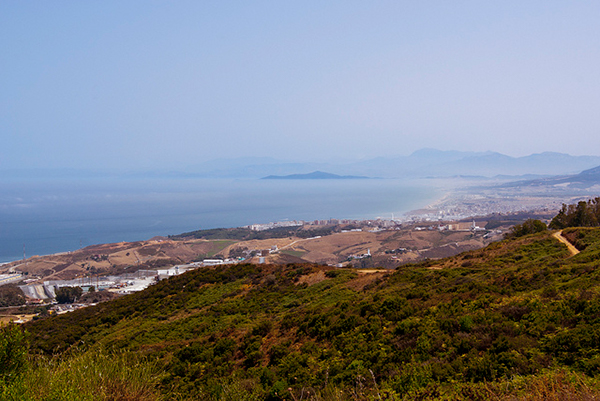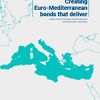(*) This article was originally published on 20/5/2021 in El Mundo.
Morocco had been showing for weeks signs of discomfort and anger with Spain for the reception in a hospital in Logroño of the leader of the Polisario Front, Brahim Ghali, afflicted by COVID-19. Rabat has chosen an unsubtle way of translating its discomfort into action. The order was given to open the Moroccan gates of the border with the Spanish North African city of Ceuta, allowing the departure of thousands of Moroccan and sub-Saharan civilians, many of them minors. It was a premeditated decision aimed at achieving specific objectives and in response to a changing context at the international level and within Morocco itself.
On 10 December 2020 a destabilising event shook North Africa and the Western Mediterranean. On that day, Donald Trump, who had just lost his re-election as US President, tweeted that he recognised Morocco’s sovereignty over the disputed territory of the Western Sahara. He was doing so as a transaction in exchange for Morocco establishing full relations with the State of Israel, even in the absence of prospects for peace with the Palestinians. That unilateral decision by Trump was euphorically celebrated by the Moroccan authorities and has led them to adopt a much more assertive attitude in their foreign relations.
“Trump’s ‘gift’, just prior to leaving the White House, does not come without risks for Morocco itself”.
The emboldening of Morocco’s diplomacy was evident when it sparked a crisis with Germany last March, presumably against the backdrop of the Sahara issue. Rabat wanted to send a signal, especially to EU countries, that it was prepared to play tough if they questioned Trump’s decision. On top of that, in the coming months, the EU Court of Justice will have to issue a new ruling regarding the legality of Morocco’s exports from the Western Sahara to the EU. There is a possibility that this ruling will be unfavourable to Morocco, which could shake up relations with its northern neighbours.
Trump’s ‘gift’, just prior to leaving the White House, does not come without risks for Morocco itself. The diplomatic success –important but insufficient to claim victory– may lead it to make miscalculations with countries that are very important as regards guaranteeing its own interests. Morocco, like many other countries, is facing a severe economic and social crisis aggravated by the restrictions caused by the COVID-19 pandemic. It would be self-harming for Morocco to engage in sparking crises with countries that are key partners in domains such as the economy, security and support in international forums. For now, it has already initiated two crises with two European countries (Germany and Spain) in just two months.
The opening of the Moroccan gates leading to Ceuta has taken place in a context of increasing internal pressures in Morocco. On the one hand, the economic suffocation to which Rabat is subjecting the Spanish autonomous cities of Melilla and Ceuta is also causing a lot of damage among the bordering Moroccan populations. The disappearance of the income from trade through the Beni Ensar customs post with Melilla, as well as from the ‘atypical trade’ carried on with both Spanish cities, is depriving tens of thousands of Moroccan families of vital income for their subsistence. This explains, in part, why the Moroccan authorities are seeking a vent to release pressure and social unrest to which they have contributed.
On the other hand, internal pressure has also grown in recent days as a result of the new round of violence between Israelis and Palestinians, especially because of the harsh images coming from Gaza. Segments of the Moroccan public opinion, both Islamist and non-Islamist, are expressing unease that their country is normalising relations with Israel, a state that is seen to be the cause of the human suffering endured by the Palestinian civilian population. If the violence is prolonged, or if there is a massacre with a strong emotional impact, the pressure from the street on the Alawite monarchy could increase greatly. This may explain, in part, the search for an ‘external enemy’ to divert attention to. Once again, Trump’s ‘gift’ spills over onto Spain.
“The question is what to expect from the new US Administration in the current context”.
The question is what to expect from the new US Administration in the current context. It is true that Morocco is an important partner for Washington and that President Joe Biden does not seem likely to reverse the presidential proclamation of his predecessor regarding the Western Sahara. However, opening borders to let in thousands of undocumented migrants does not seem to be the best presentation card to an Administration that also has its migration and border problems with its southern neighbours. Nor should Morocco’s freezing of security cooperation with Spain be welcomed in Washington or in European capitals, as the effects can be felt far beyond the Strait of Gibraltar. Spain should make this clear to its allies and also to Morocco.



